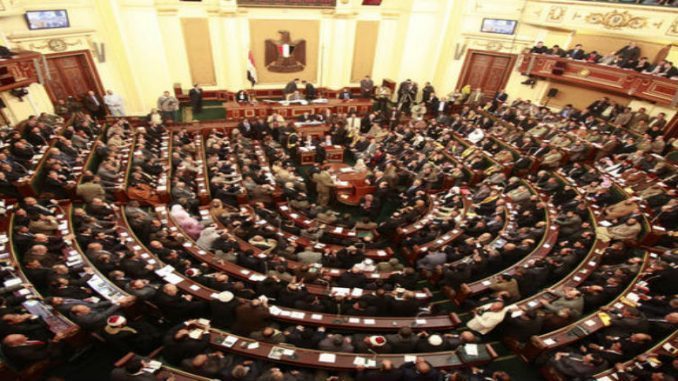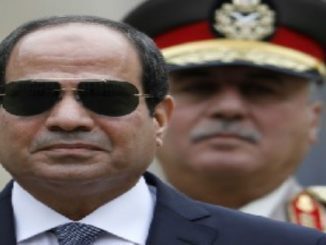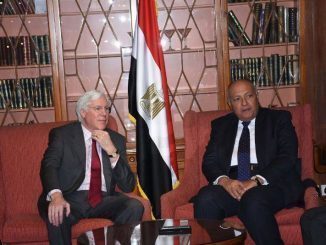
Egypt’s parliament passed a law that could make senior military officers immune from future prosecution over to violence that followed the 2013 ouster of the country’s first democratically elected president Mohamed Morsi.
The law gives Abdel Fattah al-Sisi the right to name officers to be eligible for immunity from investigation into alleged offences committed while Egypt’s constitution was suspended between Morsi’s overthrow on July 3, 2013 and the reconvening of parliament on Jan. 10, 2016.
In one of the bloodiest events in Egypt’s recent history, hundreds were killed when security forces broke up a sit-in at Cairo’s Rabaa Square in support of Morsi in August 2013. He was removed from office by a military coup led by Abdel Fattah al-Sisi, the Minister of Defense, at that time.
Hundreds more were killed in street clashes with police over several months after the August 14 carnage.
Global rights groups Amnesty International and Human Rights Watch said that at least 40,000 people were arrested within the first year of Morsi’s removal.
Hundreds more have been sentenced to death or lengthy jail terms after speedy mass trials, including Morsi and several leaders of the Muslim Brotherhood.
After speeding through a legislative process that typically takes months, the law was passed by a show of hands in parliament with an overwhelming majority of attending lawmakers raising their hands in support. Only eight MPs voted against it.
The bill was endorsed by a majority of parliamentarians with only eight opposition MPs in the 596-seat assembly voting against it, said Haitham Al Hariri who was among those who opposed it.
According to Mr. Hariri, the law would grant immunity to officers for any action they might have carried out from July 2013 to June 2014, unless the Supreme Armed Forces Council opposes it.
Mr. Hariri criticised the law and the powers it could give al- Sisi, saying decisions concerning the military should be taken only by the Supreme Council of the Armed Forces.
“Why should they need immunity if they did not commit any wrongdoing,” he said of the officers, who have not been named.
“The Supreme Council of the Armed Forces should be the one to take decisions concerning the military. It is not logical for one person to take these decisions,” he said.



